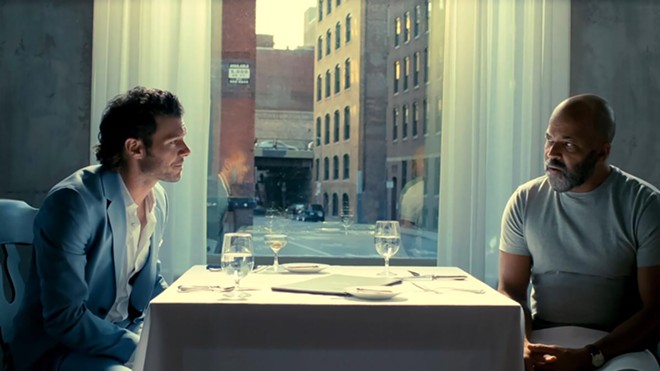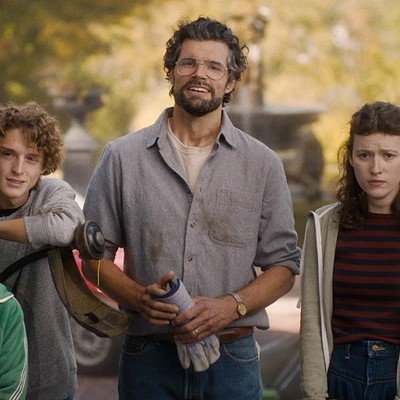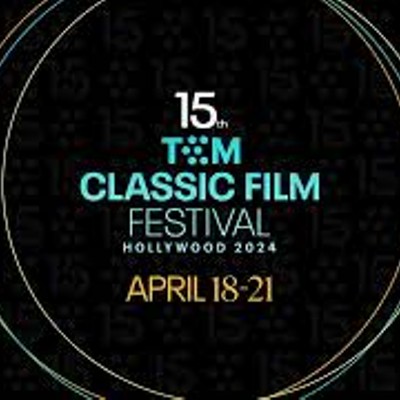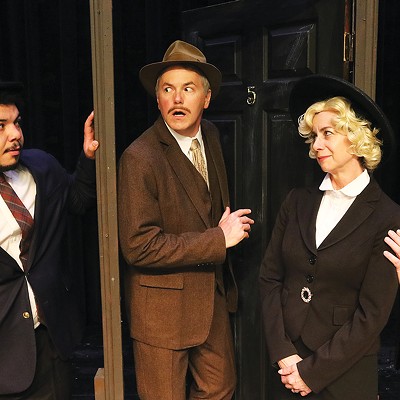Fiction drives vital point home with humor
Smart, pointed and funny, Cord Jefferson's American Fiction is surely the timeliest and perhaps the most vital film currently in theaters. An adaptation of the novel Erasure by Percival Everett, the movie puts racism and the "Woke Movement" in the crosshairs, providing a fresh perspective on the former while properly eviscerating the latter. Sporting a solid cast who eagerly tear into Jefferson's sharp script, the movie wisely uses humor to approach these touchy subjects, a tactic that invites, rather than suppresses, conversation and reconciliation.
Monk Ellison (Jeffrey Wright) is plagued by the sort of malaise that comes to longtime academics. Overworked and underappreciated, he goes about his work but notices a general decline in his students' work and a disturbing societal acceptance of the mediocre. This is reflected in the fact that his novels – well-written, erudite works – have failed to find an audience. That's why the success of Sintara Golden's (Issa Rae) book, We Lives in Da Ghetto rankles. Filled with stereotypical portraits of Blacks as well as a formulaic plot, the novel becomes a success, embraced by those in the liberal, white, middle-class who long to appear sympathetic and understanding.
Infuriated and a bit inebriated, Ellison assumes the nom de guerre Stagg R. Leigh and writes a parody entitled Ma Pafology that he submits to his agent, Arthur (John Ortez), as a joke but who passes it on to perspective publishers. Ironically, there ends up being a bidding war, those at the cloistered New York publishing houses blissfully unaware their collective legs are being pulled. Needless to say, things spin wildly out of control. The book becomes a best-seller, "Leigh" a media sensation, and Ellison's financial concerns become a thing of the past. Of course, it all comes at a cost.
At the core of the film is the question of identity. Ellison has to contend with the emotional repercussions of abandoning his literary aspirations and selling out, as well as his shifting role within his family. His sister, Lisa (Tracy Ellis Ross), chastises him for being absent as a brother and son, and only returning home when he finds his mother (Leslie Uggams) has taken ill. Soon after his return, Lisa dies and suddenly he becomes caretaker to his mother, and ostensibly his brother, Cliff (Sterling K. Brown), who has recently come out as a homosexual after leaving his own family.
His life as a professor and respectable author didn't come with the respect he craved and the money he needed, so the question becomes how long Ellison can subsume his real self without permanently compromising his true identity. The satire at play here is never overbearing. Jefferson lets the situation play out naturally, the ridiculous premise questioning the racial politics of Ellison's dilemma, who knows full well that to his own self he should be true; the problem is, such integrity doesn't pay the bills and if white guilt is the catalyst for his alter ego's success, so be it. On the surface, it seems to be a win-win situation, until the question of conscience rears its ugly head.
Jefferson wisely offers up no easy answers to these social issues, knowing full well that Fiction's purpose is to prompt discussion. Many may be frustrated by the final scene, but it proves to be a metaphor for the trial our country continues to struggle with. How racism will be resolved, if it ever well, is in our hands, the ending to this story as yet unwritten. More than anything, the film reminds us that the way in which we see and present ourselves is the way in which others will views us as well. In theaters.
The Underdoggs fails to score
In 2005, Calvin Broadus Jr. (a.k.a. Snoop Dogg) created a youth football league. Along with his own son, 85,000 children have played in the league – 20,000 of them went on to college and 25 of them were eventually drafted to the NFL. This is an interesting story, one worthy of either a documentary or feature film, a feel-good tale bolstered by the popularity of Broadus as well as the positive message it provides. However, instead of that, we get The Underdoggs, an inept, crude, laborious movie that caters to the lowest common denominator, a collection of worn-out jokes and predictable plot points. To call it a movie is an insult to anything composed on celluloid.
Tell me if you've heard this one before – An egotistical ex-football player, Jaycen Jennings (Mr. Dogg), is sentenced to community service after being involved in a serious incident of road rage. However, instead of cleaning up parks, he gets the bright idea of coaching a youth football team, after finding out a former flame, Cherise (Tika Sumpter), is looking for someone to take over her son's squad. Realizing this will help change his image and get him in good with the sexy mom in question, he agrees to do so, but in the most hands-off way possible. However, he comes to see his former self in his young charges and begins to care for them. Yet, this is called into jeopardy when an opportunity arises in which he must choose between bettering himself or sacrificing for the team.
The funniest thing about this enterprise is the fact that it lists three people as co-writers. This is humorous because I can't imagine anyone wanting to take credit for the film, while it boggles the mind to think it took three people to concoct this collection of cliches. Personally, I think this trio is a front. I have no hard proof, but I wouldn't be surprised if this was the first Hollywood production of a script composed by AI. All you would have to tell the program is to model the script after The Bad News Bears, switch the sport the kids play to football and make sure every third word the youngsters utter is an expletive.
I've always been suspect of the notion that if you give an infinite number of monkeys typewriters, one of them would compose the works of Shakespeare. However, I firmly believe that under these circumstances, one of the simians would write a script better than this one. To be sure, there will be some who will be entertained hearing 10-year-olds drop the f-bomb again and again, find comfort in the predictability of the plot and think I am being too rough on this movie. That's fine, to each their own. Like the light and the dark, films like this must exist so that we may appreciate those that excel. However, when you produce something that makes The Room look like high art, you've sunk too low. Streaming on Amazon Prime.



















